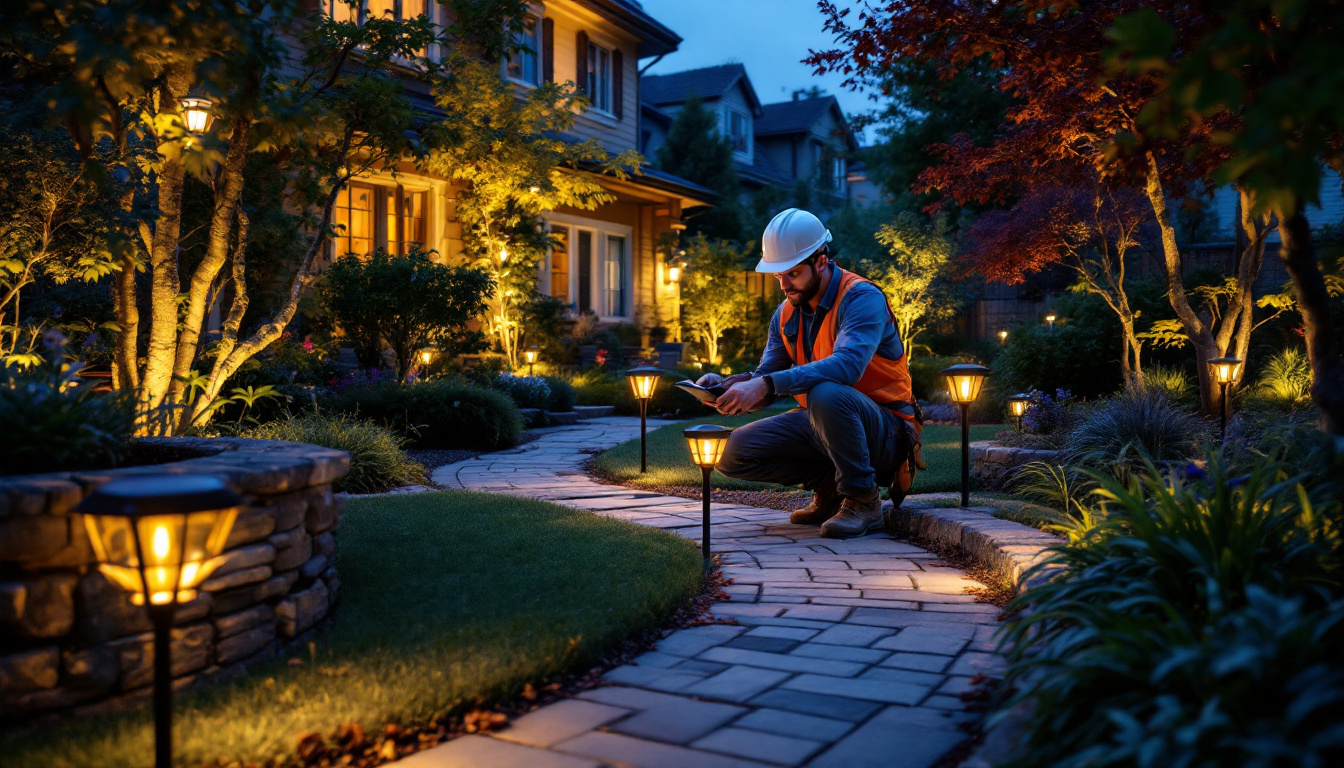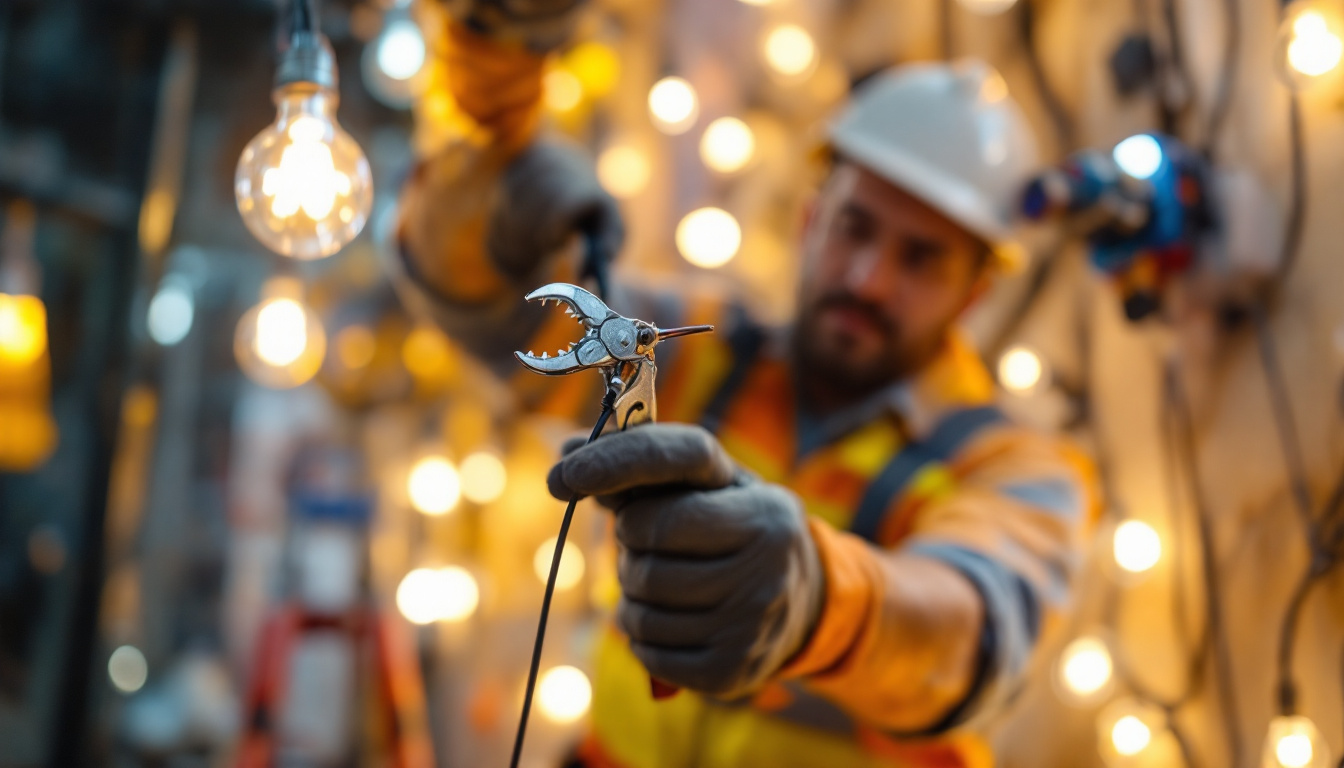
As the demand for sustainable energy solutions continues to rise, backyard solar lights have become an increasingly popular choice for homeowners. For lighting contractors, understanding the nuances of installing and maintaining these systems is crucial. This article outlines essential do’s and don’ts to ensure successful projects and satisfied clients.
Before diving into the practical aspects of installation, it is vital for contractors to have a solid understanding of how solar lighting systems function. These systems harness sunlight, converting it into energy that powers LED lights. This process involves several components, including solar panels, batteries, and control systems. By effectively utilizing renewable energy, solar lighting systems not only reduce dependence on traditional power sources but also promote a greener environment, making them an essential consideration in modern construction and landscaping projects.
Each solar light typically consists of a solar panel, a rechargeable battery, an LED light, and a control system. The solar panel collects sunlight during the day, converting it into electrical energy. This energy is stored in the battery, which powers the LED light at night. The control system manages the charging and discharging processes, ensuring optimal performance. In addition to these primary components, some advanced solar lighting systems may also include motion sensors, which enhance security by activating the lights when movement is detected, and smart technology that allows for remote control and programming via mobile applications.
Solar lights offer numerous advantages, making them an attractive option for outdoor lighting. They are energy-efficient, reducing electricity costs for homeowners. Additionally, they are easy to install, as they do not require extensive wiring or electrical work. Furthermore, solar lights contribute to sustainability efforts, appealing to environmentally conscious clients. Beyond these benefits, solar lighting systems can also enhance safety and security in outdoor spaces. Well-lit pathways, driveways, and gardens not only improve visibility but also deter potential intruders, creating a safer environment for families and communities. Moreover, with advancements in solar technology, many solar lights now come with longer battery life and brighter LED outputs, making them suitable for a wider range of applications, from residential gardens to commercial properties and public parks.
When it comes to installing solar lights, there are several best practices that contractors should follow. These do’s can enhance the effectiveness and longevity of the lighting systems.
One of the most critical steps in installing solar lights is assessing the location. Solar panels require direct sunlight to function efficiently. Before installation, evaluate potential sites for shade from trees, buildings, or other obstructions. A well-lit area will ensure that the solar lights charge adequately during the day, providing optimal illumination at night. Additionally, consider the angle of the sun throughout the day and across seasons, as this can influence how effectively the solar panels capture sunlight. If possible, test the area with temporary lights to gauge performance before committing to a permanent installation.
Not all solar lights are created equal. Investing in high-quality products can significantly impact the performance and durability of the lighting system. Look for lights with robust solar panels, long-lasting batteries, and reliable LED technology. Researching reputable brands and reading customer reviews can help in selecting the best options for clients. Furthermore, consider the warranty and customer support offered by manufacturers, as these can be indicators of product reliability. A good warranty can provide peace of mind and assurance that the investment is protected against defects or performance issues.
Seasonal changes can affect the performance of solar lights. In regions with long winters or heavy cloud cover, the amount of sunlight available for charging may be limited. Contractors should consider this when recommending solar lighting solutions. Providing clients with information on seasonal performance and suggesting additional lighting options can enhance customer satisfaction. For example, incorporating solar lights with motion sensors can help conserve battery life during darker months while still providing security and visibility when needed. Additionally, educating clients on how to maintain their solar lights, such as cleaning the panels and checking battery health, can further extend the lifespan and efficiency of the installation.
While there are many best practices to follow, there are also common pitfalls that contractors should avoid when installing solar lights. Understanding these don’ts can help prevent issues down the line.
Before starting any installation project, it is essential to be aware of local regulations and codes regarding outdoor lighting. Some areas may have restrictions on light pollution or specific guidelines for solar installations. Failing to adhere to these regulations can result in fines or the need to remove installed lights. Additionally, certain neighborhoods may have homeowner association (HOA) rules that dictate the types of fixtures allowed, their brightness, and even their placement. It’s crucial for contractors to conduct thorough research to ensure compliance and avoid potential disputes with local authorities or residents.
While solar lights require less maintenance than traditional lighting systems, they are not entirely maintenance-free. Contractors should inform clients about the importance of regular cleaning and occasional battery replacement. Dust, debris, and snow can obstruct solar panels, reducing their efficiency. Educating clients on proper care will help ensure the longevity of their solar lighting systems. Moreover, it’s beneficial to discuss seasonal considerations, such as the need for more frequent checks during winter months when snow accumulation might be a concern. Providing clients with a simple maintenance schedule can empower them to keep their solar lights functioning optimally throughout the year.
Although solar lights are often marketed as easy to install, some systems can be more complex than they appear. Contractors should not underestimate the time and effort required for a successful installation. Carefully following manufacturer instructions and ensuring all components are correctly installed will lead to better performance and customer satisfaction. Furthermore, factors such as terrain, sunlight exposure, and the intended purpose of the lighting—be it for security, ambiance, or pathway illumination—can influence the installation process. Taking the time to assess the site and plan the layout can prevent future issues and enhance the overall effectiveness of the solar lighting system.
Designing a solar lighting system involves more than just selecting fixtures. It requires a thoughtful approach to aesthetics, functionality, and safety. Here are some key considerations for contractors.
When designing a solar lighting layout, it is essential to consider the intended purpose of the lighting. Are the lights meant to illuminate pathways, enhance security, or create ambiance in outdoor living spaces? Understanding the primary function will guide the selection of fixtures and their placement.
Solar lights come in various styles and designs, allowing contractors to create visually appealing outdoor spaces. Consider the architectural style of the home and the surrounding landscape when selecting fixtures. A cohesive design will enhance the overall aesthetic and appeal to homeowners.
Safety should always be a priority when designing outdoor lighting systems. Ensure that pathways, steps, and other potential hazards are well-lit to prevent accidents. Additionally, consider accessibility for individuals with mobility challenges. Properly placed solar lights can enhance safety while providing an inviting atmosphere.
Effective communication with clients is essential for a successful solar lighting project. Educating clients about the systems and their benefits can lead to informed decisions and increased satisfaction.
One of the primary selling points of solar lights is their energy efficiency. Educate clients about the potential cost savings associated with solar lighting. Provide estimates on how much they can save on their electricity bills, and highlight the long-term benefits of investing in solar technology.
Transparency during the installation process can help build trust with clients. Explain the steps involved in the installation, including any necessary preparations, potential disruptions, and the expected timeline. Keeping clients informed will lead to a smoother experience and greater satisfaction with the final result.
Once the installation is complete, clients should be aware of how to maintain their solar lights. Provide written guidelines or a quick reference guide that outlines cleaning procedures, battery replacement, and troubleshooting tips. This information will empower clients to take care of their systems effectively.
The solar lighting market is continually evolving, with new technologies and trends emerging regularly. Staying informed about these developments can give contractors a competitive edge.
Smart solar lighting systems are gaining popularity, allowing homeowners to control their outdoor lights via smartphone apps or voice-activated devices. These systems can offer features such as dimming, scheduling, and motion detection, enhancing convenience and energy efficiency. Contractors should consider incorporating smart technology into their offerings to meet client demands.
Another trend is the integration of solar lighting with other outdoor elements, such as solar-powered fountains or garden features. These integrated solutions provide a cohesive look while maximizing energy efficiency. Contractors can explore partnerships with manufacturers offering these innovative products to expand their service offerings.
Advancements in battery technology are also shaping the future of solar lighting. Newer batteries offer longer lifespans and improved performance in low-light conditions. Contractors should stay updated on the latest battery options to provide clients with the most reliable and efficient solar lighting solutions.
Backyard solar lights present a valuable opportunity for lighting contractors to offer sustainable and energy-efficient solutions to homeowners. By understanding the do’s and don’ts of installation, design considerations, and emerging trends, contractors can enhance their expertise and deliver exceptional service. Educating clients about the benefits of solar lighting and maintaining open communication throughout the process will lead to satisfied customers and successful projects.
As the demand for solar lighting continues to grow, contractors who embrace these principles will position themselves as trusted experts in the field, ready to meet the needs of an evolving market.
Ready to elevate your lighting projects with the most sustainable and efficient solutions? Look no further than LumenWholesale for all your backyard solar light needs. We provide contractors with top-quality, spec-grade lighting products at unbeatable wholesale prices, ensuring you deliver excellence to every homeowner. Say goodbye to local distributor markups and hello to superior products, free shipping, and the best value for your bulk purchases. Don’t compromise on quality or affordability. Wholesale Lighting at the Best Value is just a click away. Partner with LumenWholesale today and light up your projects with confidence and convenience.

Discover the essential insights and strategies for lighting contractors in “Wire Pullers: The Points for Lighting Contractors.” This article delves into the latest industry trends, innovative techniques, and practical tips to enhance your projects and boost client satisfaction.

Discover the key challenges lighting contractors face when installing highbay LED lights, from navigating complex installations to ensuring energy efficiency and cost-effectiveness.

Discover the often-overlooked aspects of T8 light bulbs that even seasoned lighting contractors might miss.

Explore the transformation of 8-foot fluorescent light tubes and their impact on the lighting industry.